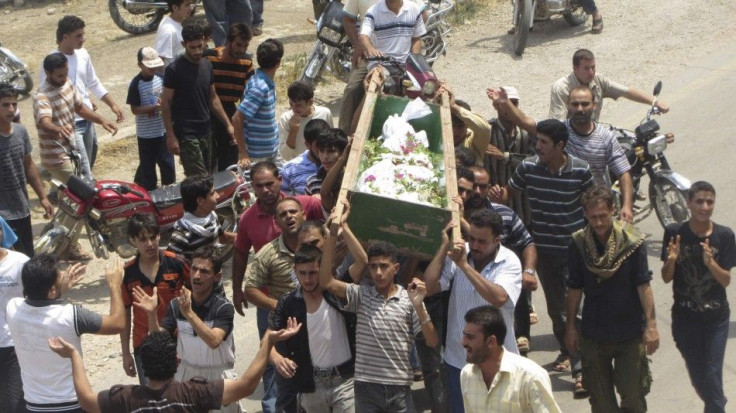Assad's Downfall Inevitable, Says UN Observer
But his departure won't end Syria's civil war, he added

The head of a recently ended United Nations observer mission said Bashar al Assad's days are numbered as president of Syria, but that his ouster isn't likely to put an end to the 16-month long conflict that has escalated into street-to-street fighting in Syria's two main cities.
"In my opinion it is only a matter of time before a regime that is using such heavy military power and disproportional violence against the civilian population is going to fall," Norwegian Maj. Gen. Robert Mood told Reuters in a report published Friday, a week after returning from Syria as the head of the United Nations' observer mission.
Columns of tanks, helicopter gunships and fixed-wing fighter jets have been witnesses in or near Aleppo, raising concerns that escalating skirmishes between loyalists and rebels was about to get much worse for the city's 2.1 million residents.
U.S. State Department spokeswoman Victoria Nuland said the U.S. would not intervene militarily but is providing rebels with non-military material support, including medical supplies, according to the BBC.
The Syrian army has amassed on the outskirts of the city, firing mortar rounds into heavily populated districts in the western part of the city while helicopter gunships were firing rockets into neighborhoods in the east, observers on the ground reported.
"The special forces were deployed on Wednesday and Thursday on the edges of the city, and more troops have arrived to take part in a generalized counter-offensive on Friday or Saturday," a government officer told AFP.
International Press Barred From Country
Because the international press has been barred from entering the country legally, most of the reports coming out of Syria are from activists on the ground. An activist said that schools are being used as emergency shelters. A mortar round or missile hitting any of these shelters would lead to significant civilian casualties, he added.
"The rebels have so far been nimble, and civilians have mostly been the victims of the bombardment," the activist, Abu Mohammad al-Halabi, told Reuters by phone. "The regime is massing troops and tanks at the entrances of Aleppo, but it seems it is for now content with bombarding the city, with the rebels constantly on the move."
Friday's first reported casualty was an elderly man that the Syrian Observatory for Human Rights identified as Abdul Latif al-Shami, the imam of Amina Mosque in Saif al-Dawla neighborhood.
The organization said the sheikh was abducted by unidentified gunmen during Tarawih, the extra congregational prayer that occurs every evening during Ramadan. A photo purported to be the religious leader depicts an elderly man who appears to have been shot in the face. The attack against a congregational leader suggests a sectarian aspect to the fighting.
At least 34 civilians were killed in Aleppo on Thursday. Tens of thousands of people have been observed fleeing the city toward the border with Turkey.
The Syrian rights organization also reported clashes on Friday in the cities of Dera'a, Deir ez-Zor, Maarat al-Numan.
Reuters reported that the White House may be in the process of authorizing highly classified covert support for the rebels. The CIA has been reportedly conducting operations in Turkey where the leaders of the rebel Free Syria Army is based.
Russia accused the United States this week of supporting terrorists in Syria. Meanwhile, foreign fighters loyal to Islamist causes have been trickling into Syria from neighboring states fighting what they consider an apostate government, blurring the boundaries between rebels fighting to oust Assad and those fighting a greater spiritually inspired battle against secularism.
"The foreign fighters, some of them are clearly drawn because they see this as ... a jihad. So this is a magnet for jihadists who see this as a fight for Sunni Muslims," said CNN's Ivan Watson, one of the few foreign journalists on the ground in Syira.
--
© Copyright IBTimes 2024. All rights reserved.






















